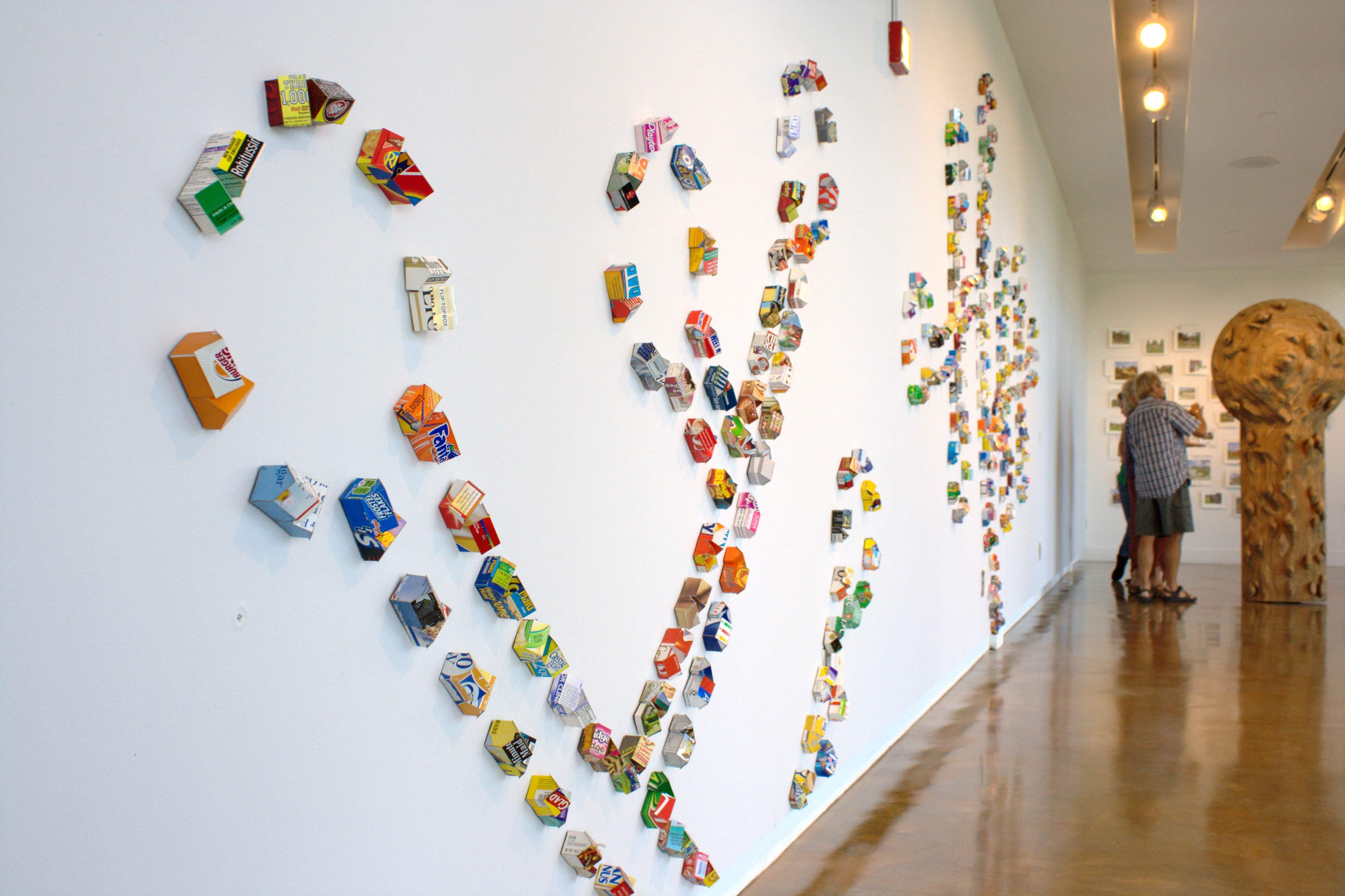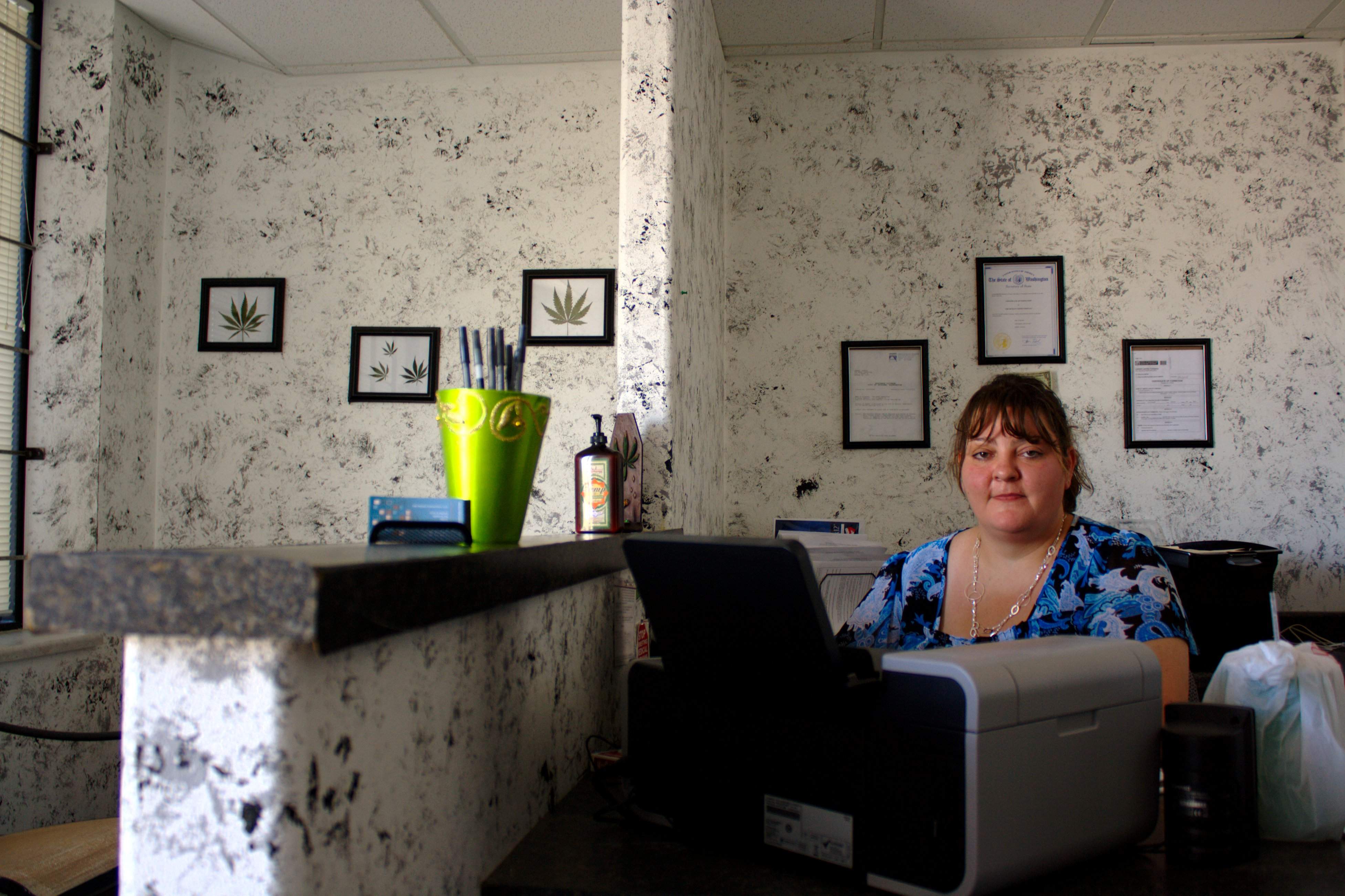
Great Tasting Goodness
By James Ziegler
Just past the doorway, behind the receptionist's desk at the Northwest Museum of Arts and Culture, sits a micro suburbia glued to the wall. Hundreds of miniature houses constructed from miscellaneous consumer goods boxes.
“Great Tasting Goodness” is one of four pieces on display by local artist, Gabriel Brown. He started making the little houses using products symbolic of consumerism roughly two years ago.
“I was doing a lot of work on consumerism and waste,” Brown said. “It has so much do with urban planing.”
Many of the boxes that went into the display were liberated from garbages and recycling centers, especially for his statue, “Standing Cul-de-sac.”
The back of the person-sized statue is decorated to look like a mini neighborhood plucked from the dirt and placed in the MAC. The front bears more little houses on a road of advertisements. Near at hand is a list of all the boxes that went into the many layers of the statue.
“Great Tasting Goodness” and “Standing Cul-de-sac” can be seen at the MAC alongside Brown's “Suburban Water Walk” and “Spokane's Outer Gateways” through Aug. 29.

Spokane dispensary crops up in Hillyard
by James ZieglerIn the heart of Hillyard an average, middle-aged, middle-class man walks into a very plain gray building. Judging by appearances only it would be imposable to guess he is a medicinal marijuana patient.
“I haven't really seen the typical stoner [in here],” said Chantel Jackson, co-owner of the Human Connection, Spokane's newest medicinal marijuana dispensary. Most of Jackson's customers are over 30, many are in their 60s.
“I was surprised to find out how many medicinal marijuana patients there were over the age of 60,” Jackson said. “You would not think that the old lady walking down the street would later go home to smoke a medical joint but they do.”
Jackson opened the Human Connection with her husband Bill on July 6, hoping to satisfy a need in the community.
“We're all here for the patient,” Jackson said. “So I want to make sure that I'm alleviating someone's nausea from kemo therapy. I'm trying to make sure I relieving someone's MS pains. That's the type of quality we want to give.”
By Washington's compassionate care laws, people who have a doctor's recommendation for marijuana use to treat a qualifying condition (AIDS, cancer, depression, etc . . .) can grow up to fifteen plants for themselves and one other person. They can also posses up to a pound and a half or as much as is medically necessary for a six month supply.